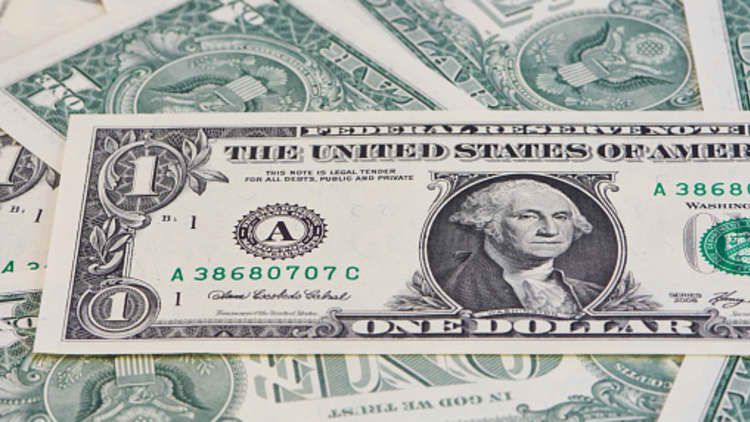The dollar rose to a six-month high against the euro on Wednesday as data indicating a slowdown in European business activity hurt the common currency, while broader risk aversion hurt the dollar against the Japanese yen.
The dollar index, which measures the greenback against a basket of six other currencies, was up 0.4 percent at 93.98, after rising as high as 94.116, its strongest since December 12.
The euro slipped 0.66 percent against the greenback to $1.17, its weakest since mid November.
Euro zone economic growth slowed much more sharply than expected this month, a business survey showed, boosting concerns that there will be no return to the bloc's recent boom times.
"There are some concerns of economic growth sort of moderating," said Peter Ng, senior FX trader at Silicon Valley Bank in Santa Clara, California.
The slowdown casts a shadow over the timing of the European Central Bank's rate hike, he said.
"Although ending the quantitative easing program was expected for September, if these growth concerns continue, there is probability they could extend that to December," said Ng.

The euro was also hurt by worries that an incoming coalition Italian government comprised of the two anti-establishment parties - the League and 5-Star - looks likely to implement big-spending policies that could add to the country's large debt and lead to Rome clashing with the European Union.
Traders were also concerned about Turkey, with the country seemingly headed for a full-blown economic crisis as the Turkish lira plunged to record lows.
The dollar slipped 0.72 percent against the , on pace for its worst day since late March, a day after U.S. President Donald Trump tempered optimism over progress made in trade talks with China.
The yen tends to rise in times of market turbulence since Japan is the world's largest creditor nation and traders tend to assume Japanese investors would repatriate funds at times of crisis.
Investors are looking to the release later on Wednesday of the minutes of the Federal Reserve's most recent meeting, when it kept interest rates steady.
In its post-meeting statement issued in early May, the Fed also said inflation had "moved close" to its target and that "on a 12-month basis is expected to run near the Committee's symmetric 2 percent objective over the medium term."
"We want to see the voice behind this optimism and what was the thinking behind it," said Ng.
Meanwhile, sterling fell to a 2018 low after weaker-than-expected UK inflation cast doubt on whether the Bank of England will raise interest rates this year.
The weakened to a more than one-week low against its U.S. counterpart as stocks and oil prices slipped.

